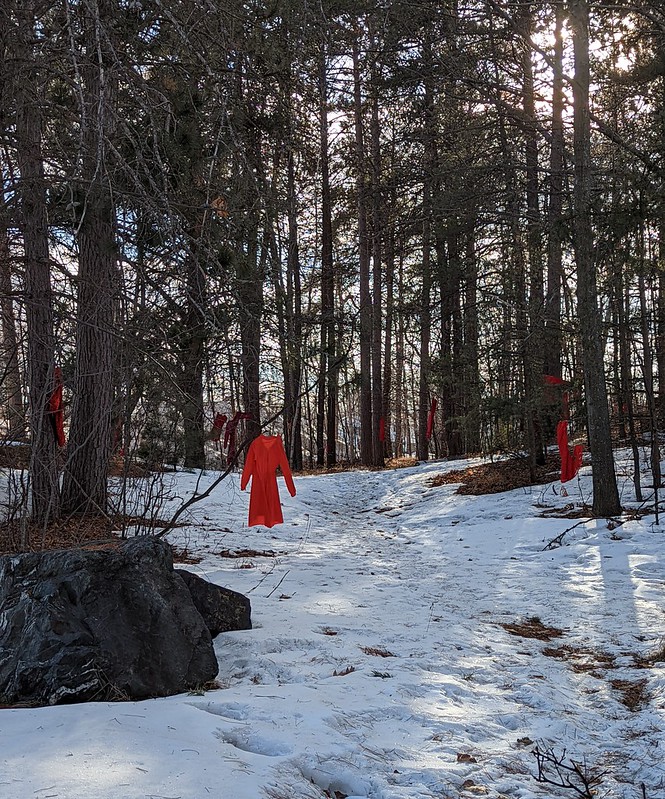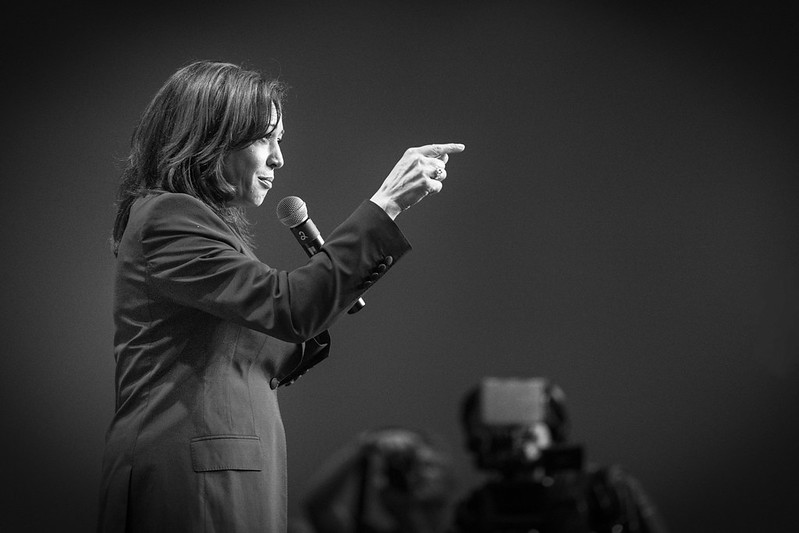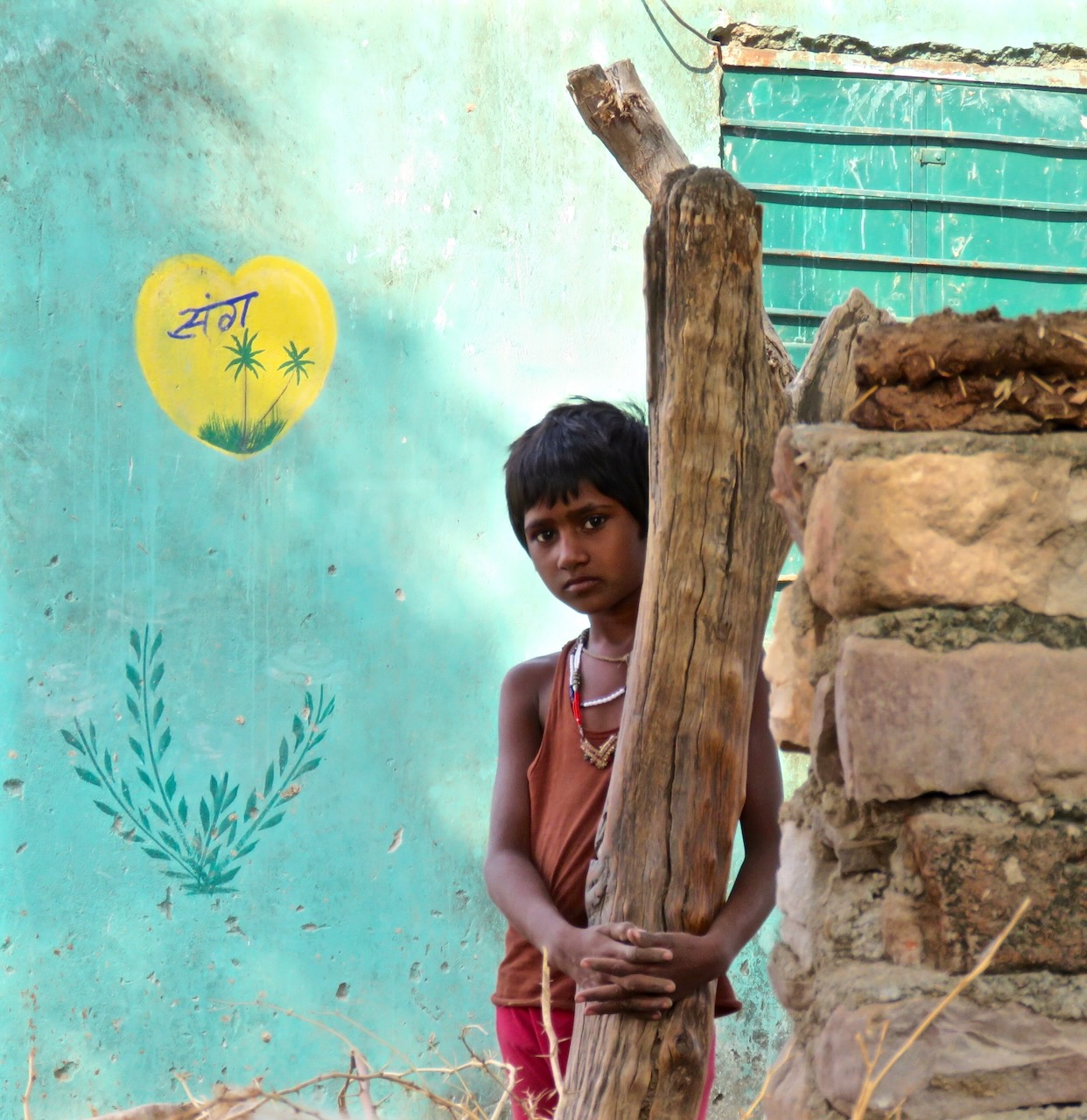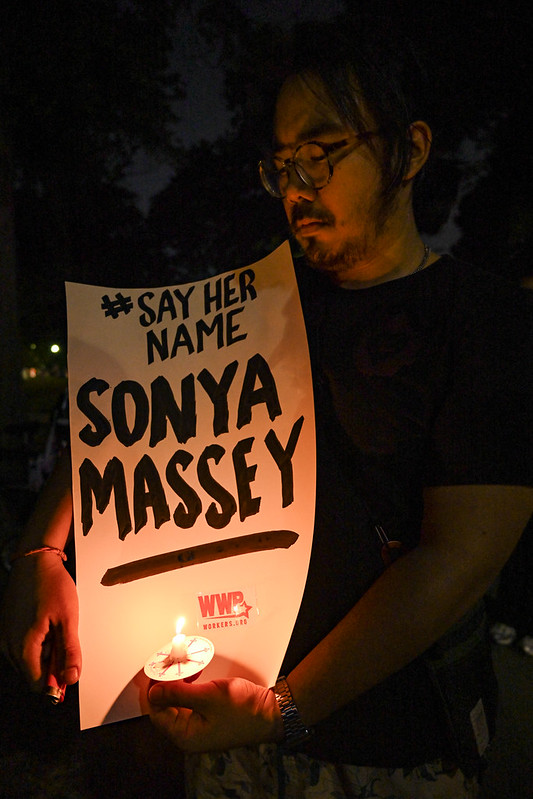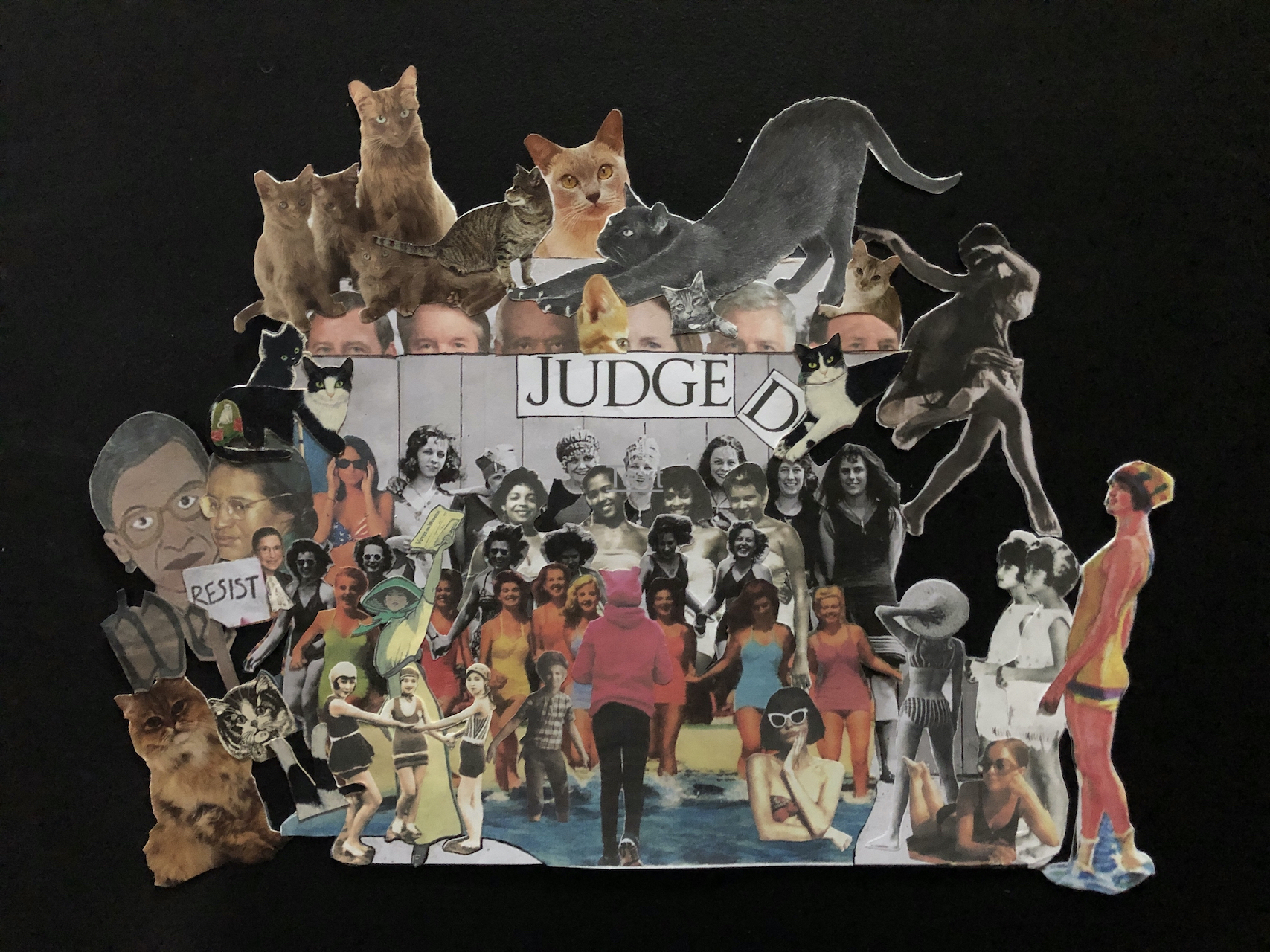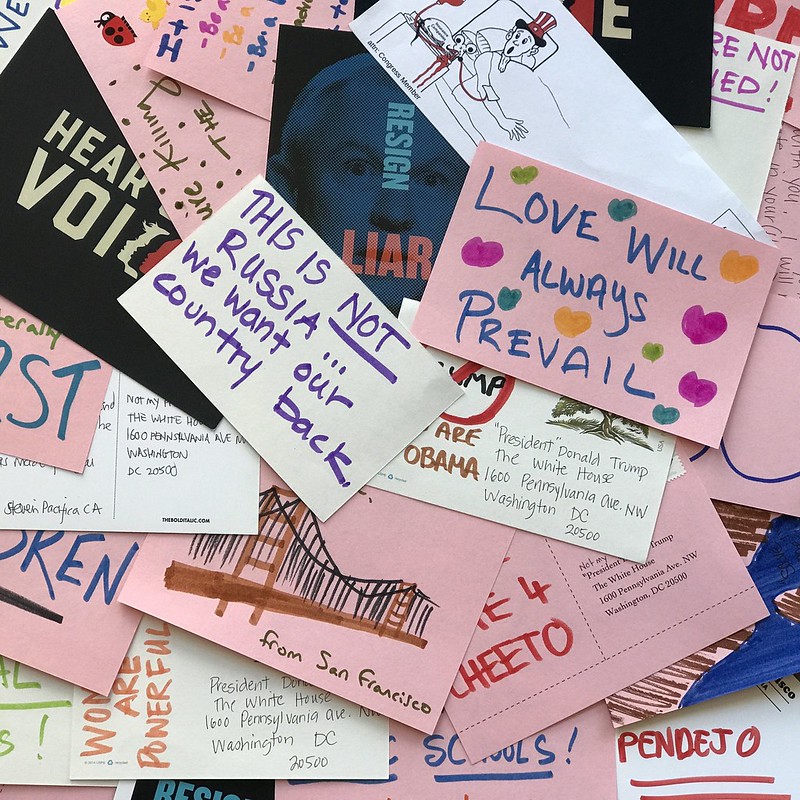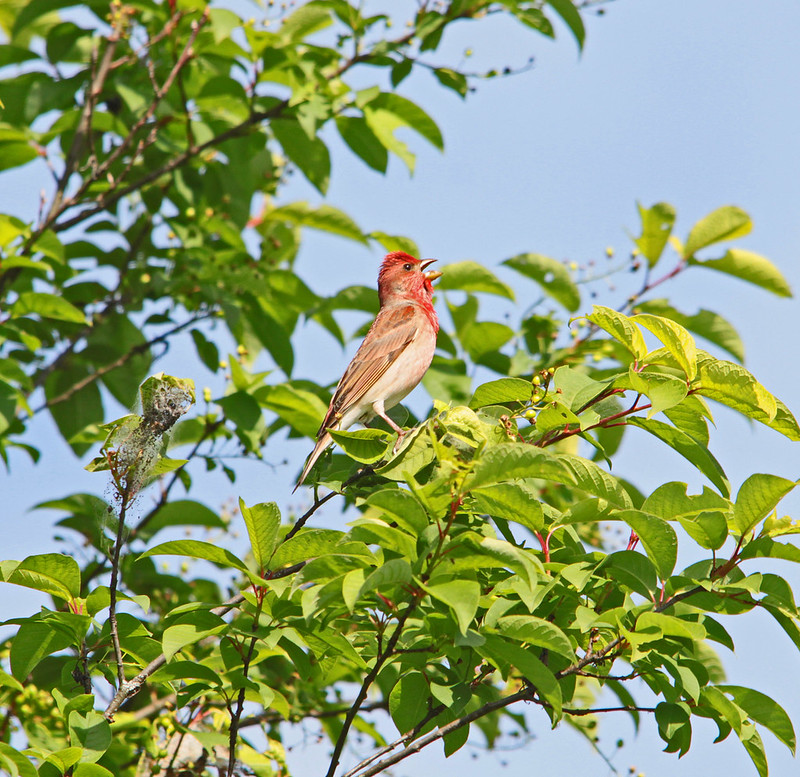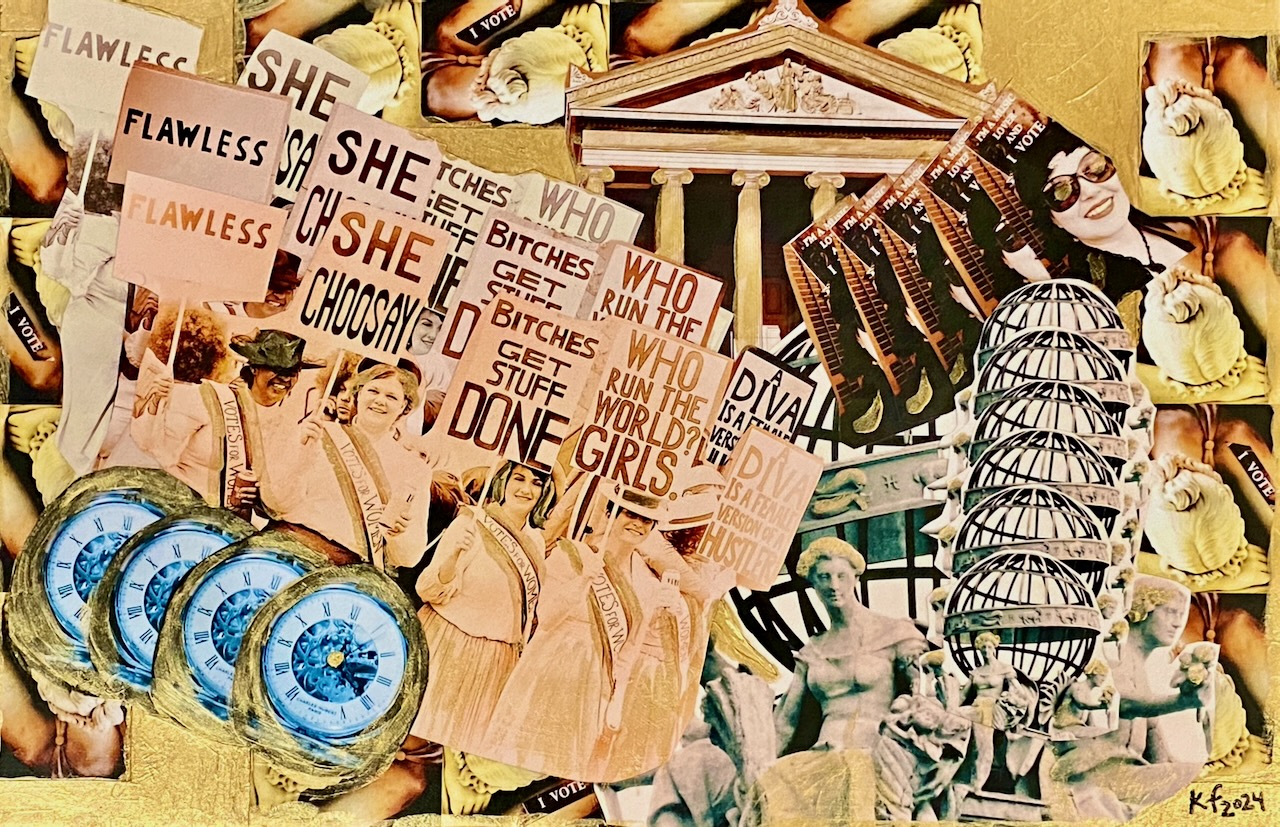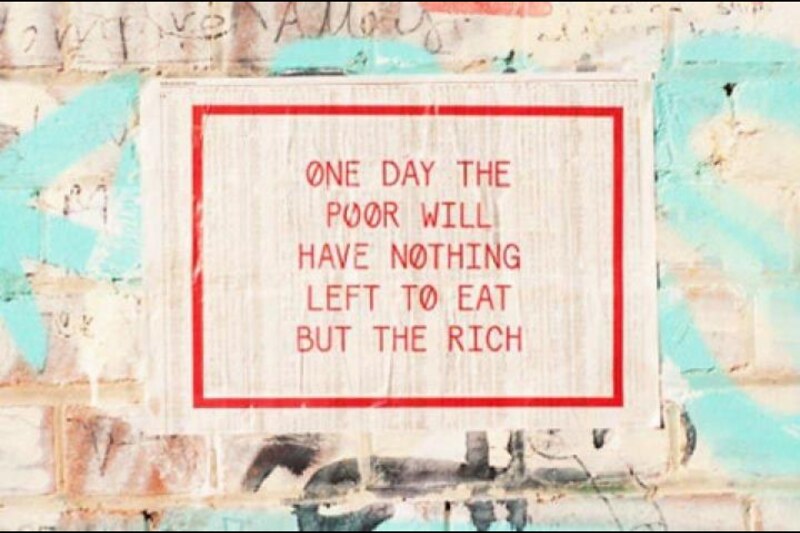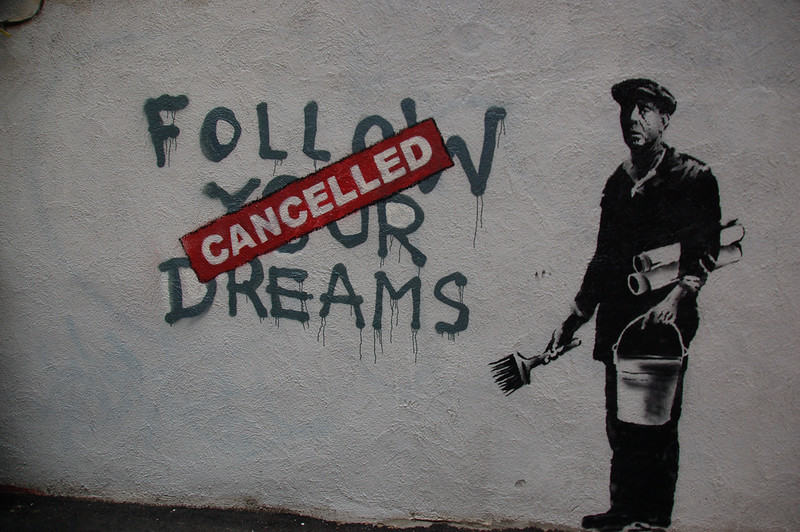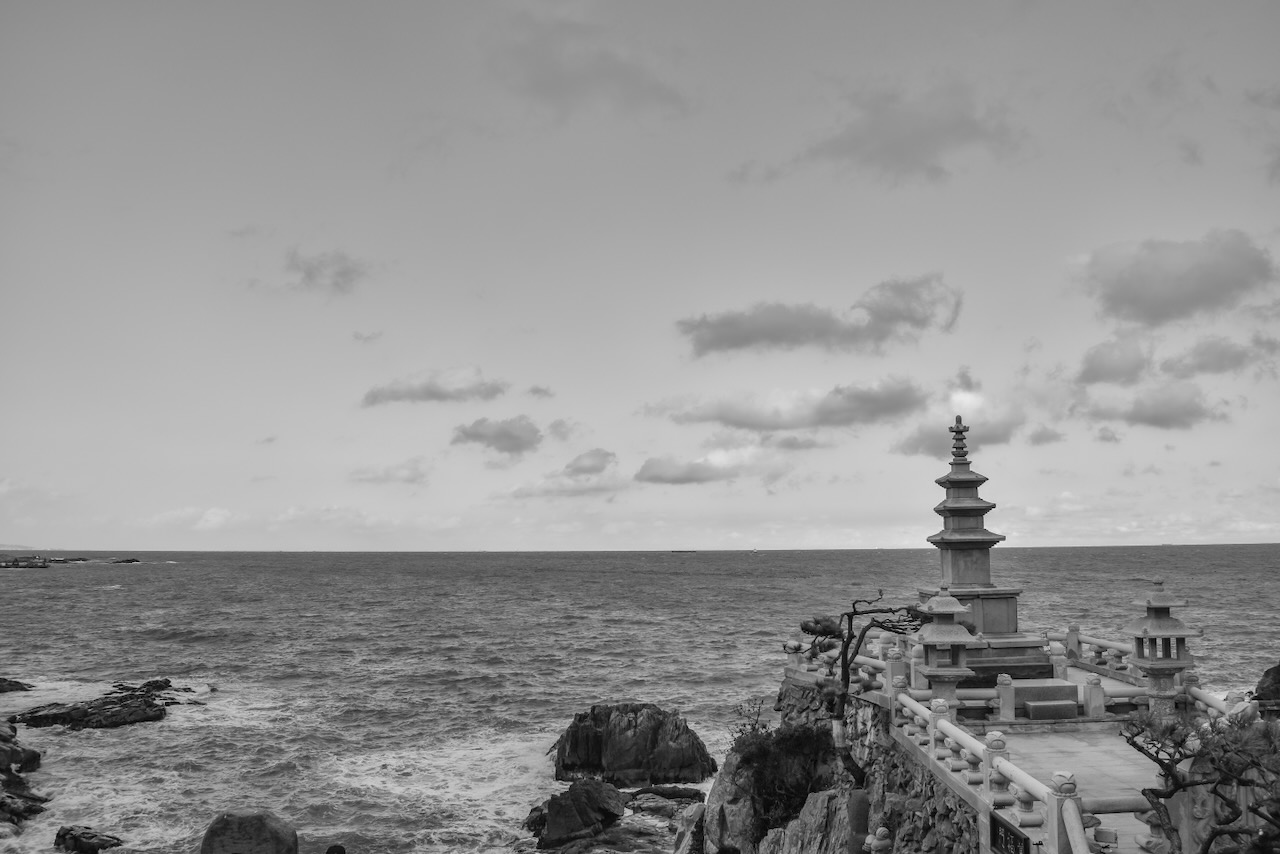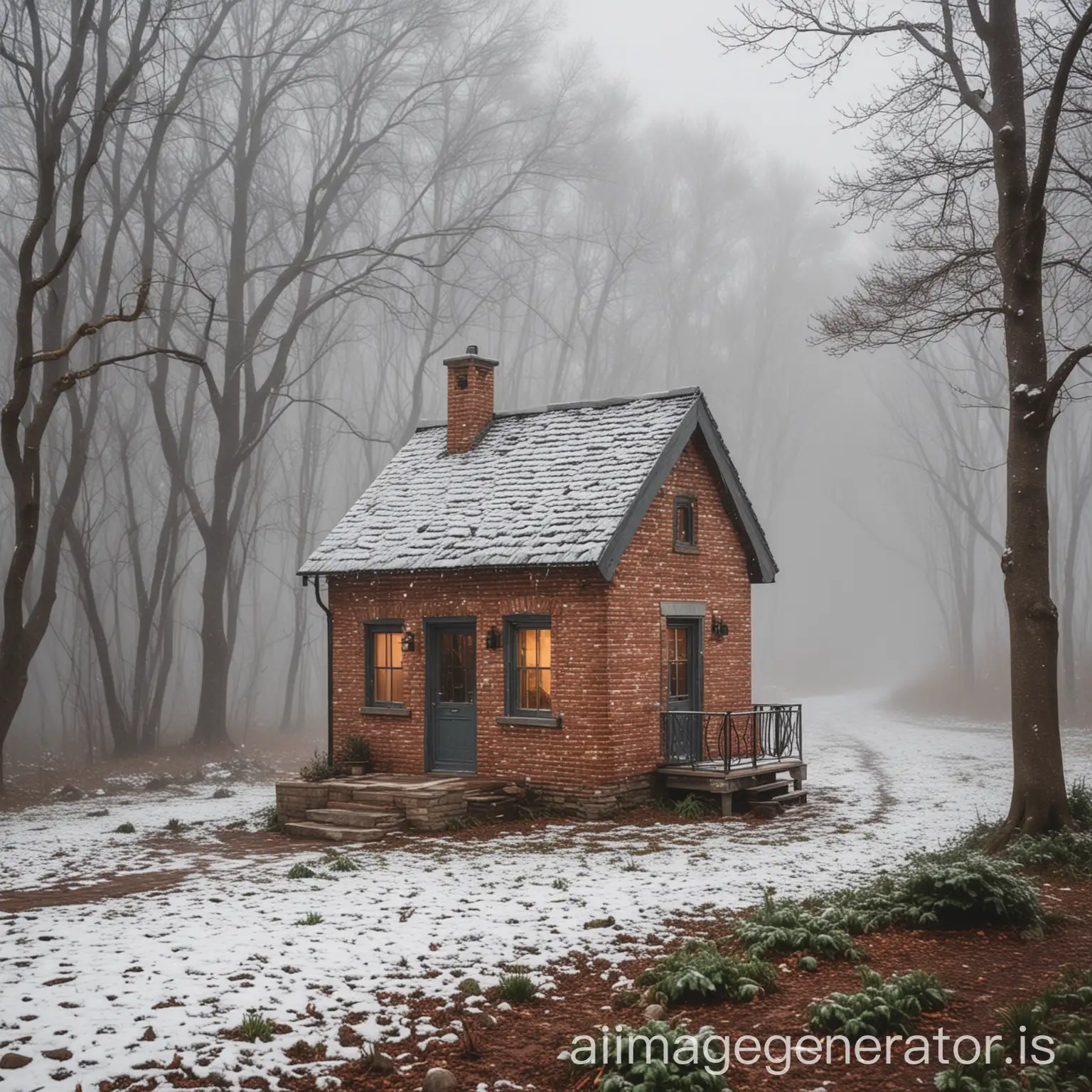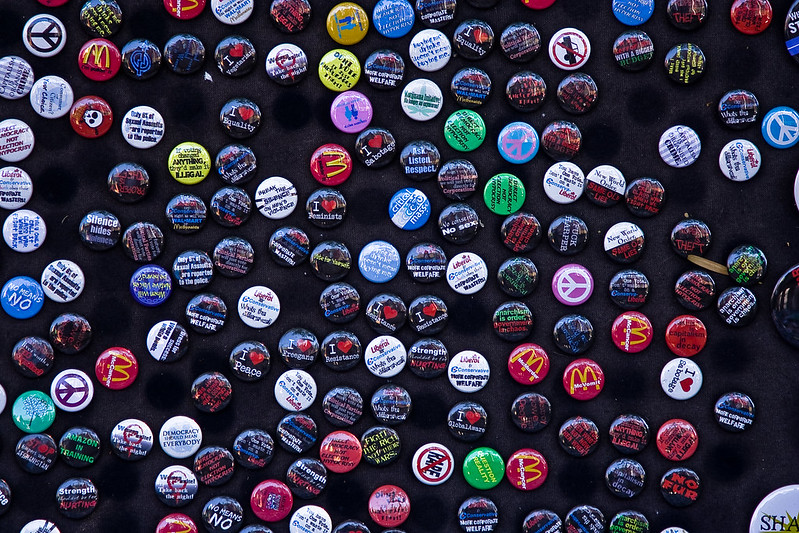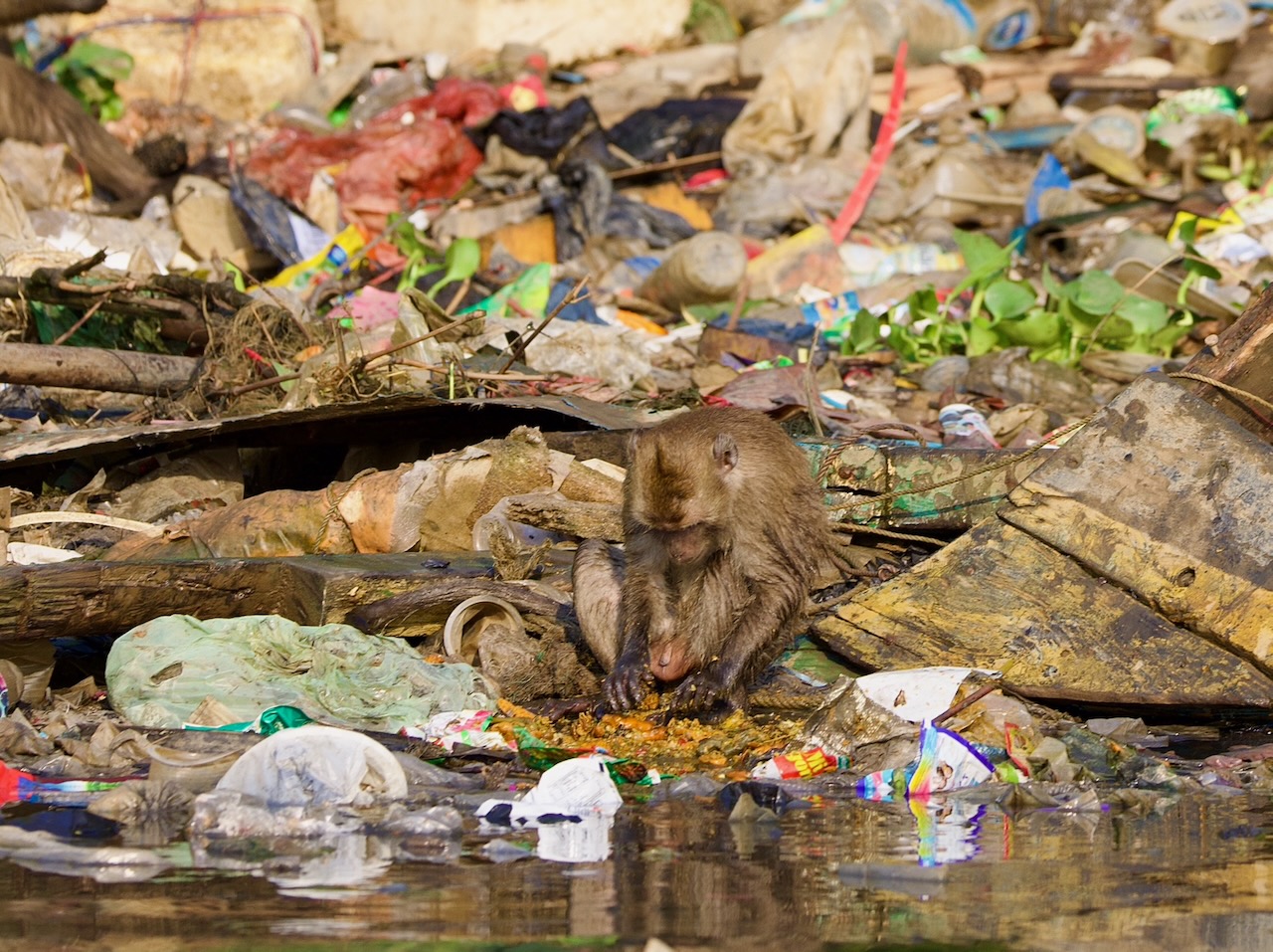Beware the Homo Sapiens
By Robyn Bashaw
“Don’t!” Eeip closes his mitt over Swee’s, stopping her from placing the bone into the waiting psittaciforme’s beak. Eeip pulls the bone from Swee’s grasp, tossing it in the Trash Trench where it lands between a rusty fork with its one twisted tine veering right and a single brass earring with its post back missing.
There had also been a Trash Trench at the archaeology dig where Swee had interned, growing steadily taller, but it was better in the trenches than the oceans, decomposing slowly, as it was wont to do, with occasional help from the curious nibble of a fish or the tear of a passing crocodile leg.
Beyond the bone, Swee can make out colored rectangular cases holding deadened black screens, wires crisscrossing over black boxes of varying sizes, deformed plastics of every color, brown and green glass bottles perfectly preserved in black bags. The plastic reminds her of the wide-eyed skull of a sciuridae, whose skeleton she’d uncovered in her second week on her internship, throttled by a plastic ring that finally fell loose as she brushed aside the dirt by its neck.
“Never the homo sapiens,” Eeip scolds, and Swee nods her head, glistening silver under the sun. It had been a mistake, but Eeip wouldn’t believe that. Swee knew the homo sapiens were the ones responsible for the Trash Trenches, for the plastic-choked deaths they found below ground, for the entrapment of fantastical creatures. They hadn’t known what to call them when they first uncovered them, entrapped in wired boxes, giftwrapped for their convenience: a huge creature with two long teeth poking out from its head, an animal with sharp teeth bigger than a shark’s protruding from its lips, a short-armed creature leaning back on a long line of delicate bones making up its tail, a tail-less animal with a curved spine and long nails clinging tight to an echo of a tree.
When the linguists had cracked one of the written human codes, they had learned some of the names along with the homo sapiens’: Elephas maximus, Panthera leo, Macropus rufus, Phascolarctos cinereus. It was archaeology that told the tale of their final extinction where the homo sapiens held them captive: Trees were pushed and tossed about past the brick walls and glass windows that were tortured by the wind. Tiny flowers cowered in fear, trying to hide their bright little heads before they were snapped right off. Rain poured out over the Earth, sweeping coffins over cliffs to be splattered against the rocks below. When the storm finished stirring graveyards, churches, homes, and schools together to be poured out fresh across the globe, all traces of homo sapiens’ time upon the world were washed away, buried beneath the new rising ocean.
Millions of years later, the water receded once more, cooling back into mountains of ice that revealed beaches for the cephalopods to waddle upon.
The psittaciforme plants its all-knowing black pupil on Swee, highlighted by the amber iris, as he accepts the bone of a tiktaalik from Eeip. The psittaciforme takes to the sky, its red wings flashing between the blue and yellow of his brethren, each carrying a bone in its talons to the river’s edge where the scientists would sort them and harness any DNA still inside. The tiktaalik have strong fins like the cetaceans to support their body weight out of water, scales like a fish, head like a crocodile, and tail as powerful as the cetaceans. Swee knew it was the kindred features that had made the tiktaalik a prime choice to resurrect from extinction.
Eeip snapped his jaw at Swee. “I thought you were trained! Do you know the damage you could have caused, passing on a homo sapiens’ bone?”
“I am trained!” Swee held her ground. She could have told Eeip about the extinctions the cetaceans had mapped backwards: the storm and subsequent flood that had wiped out the two-legged homo sapiens, the homo sapiens’ entrapment of the multitude of four-legged life, the four-legged life’s emerging from the tsunamis and fires rippling after the asteroid, the giant four-legged dinosaurs tramping across Pangea after the red lava of volcanoes coated the large, lumbering lizards whose steak knife teeth and sail atop their backs kept rivals at bay. It was back another layer of lava that they had discovered the tiktaalik before facing fathoms of ice. Swee stares at the ground under her fins; this was not her mistake. Homo sapiens were more than five extinctions apart from the tiktaalik. Their bones should not have been here at all. Swee lifts her eyes. “Maybe it fell from the Trash Trench?”
Eeip let his eyes scan over the Trash Trench, its logged edges monitored by the loyal canis lupus familiaris, and Swee felt her stomach landlock. Of course, the canis would never permit any piece of trash, much less a homo sapiens bone, to slip past their guard.
“Sorry,” Swee sings sweetly, and Eeip allows her to move on with a final warning to not let the mistake happen again.
• • •
Swee does her best to work diligently, but, when the day is done, she finds herself wandering past the cetacean and tiktaalik races with their long-standing battle of wisdom versus brute force, to slip into the river herself. Kicking her strong flippers at the end of her legs, she follows the current to the ocean where her fins shiver to brush alongside a shark and her heart pumps in relish of her flying leaps across the surface. A cackling laugh erupts from her when she spots a seal, but, when it dives deep off a shelf, she lets it pull ahead, content in the chase alone. She swims back through the teeming life of the ocean, untroubled by the schools of fish that dart away from her passage.
She pulls herself up on the river’s bank, pleased to see the brachiosaurus stretching its neck out to pluck a branch free beneath the setting sun. The land had been too bare when the cetaceans had first emerged from the ocean, so the brachiosaurs, the triceratops, and the stegosaurs had been welcome additions to help manage the plants aboveground. The same pity that had sparked Swee to pass her sciuridae’s skull along to the scientists at her internship had led to the resurrection of some of the encaged mammals.
Elephas maximus had been the most pleasant surprise. Not only did they help dig out and build the bases for the Trash Trenches, but they quickly learned to bubble the waters alongside the cephalopods to gather fish from the river to distribute to feed the pod. Swee lifts a fin now to wave at the elephas called Hoount, who swings her trunk to toss a fish Swee’s way. Swee catches it in her flipper, closing her fin over the damp scales. When she slips into her mud bed, Swee bites into the cool flesh. She tears off a small chunk of scale, offering it to her hallucigenia, which grasps the offering in three of its spindly arms, bringing it to its first mouth to suck inside its tiny body. Its two beady, black eyes watch Swee to see if more is incoming, but she does not want to overfeed her pet.
Smaller than the bottle caps littering the first layer of soil, the hallucigenia curves its hair-like neck to the ocean floor while it processes its dinner. Balanced upon its seven legs, its antennae feel ahead as it returns to Swee, who runs her fin over the spikes across its back. The tiny prickles make her laugh, and the hallucigenia nuzzles close until Swee relents and tears loose another scale chunk, reasoning to herself that one more bite wouldn’t hurt it.
Her hallucigenia is a reminder of why she chose to go into archaeology. Many would have been satisfied to stop once they reached the fathoms of ice, but Ipip was a curious cephalopod and he continued to dig. Fathoms down, the sea levels dropped as they did today and whole new creatures, including the hallucigenia, were unearthed. The gecko-sized twenty-eight-legged centipede creeping its way to nibble on microbes at low tide was perfect to keep the ecosystem balanced, but, like the hallucigenia, the wiwaxia was resurrected for its beauty. Outside many mud beds, a wiwaxia sits with its eight rows of armored plates, shimmering like a bird’s feathers with flashes of blue, green, and yellow.
Swee’s fin rests on her hallucigenia’s spikes, and she stares down into its dark black eyes as it lifts one of its legs and places it on Swee’s smooth leg. Of course. Her hallucigenia only knows her as the bringer of food. Even if Eeip hadn’t stopped her today and the homo sapiens had been resurrected, her hallucigenia would be crawling on her, seeking out more treats and rubs.
• • •
Swee arrives at the dig site early the next day, bypassing the layers etched into the ground to walk straight to the Trash Trench. The canis lap the trench, but there is one brown canis in front who paces by where the trash is thrown. Swee stops before the brown canis. Knowing they can understand more than they can say, she takes a deep breath.
“Were you once a pet?”
The brown canis, naturally, does not answer, but he does whine.
Swee reaches out her fin, forcing herself to not pull away as she runs it over the canis’s scratchy fur. She had practiced her speech last night. “I bet your homo sapiens took good care of you—fed you, petted you—but all of them weren’t that way. We can’t risk bringing any back.”
The brown canis hangs its head and whimpers, so Swee strokes him again. She had gone over it every way, but she wasn’t sure how to make a canis understand the difference between how something cared for its pet and how it cared for the world at large. Pets have such a narrow focus of the world.
“You can’t slip any more bones in,” she speaks firmly, eyeing the canis so he will know she’s serious. “Understood?”
The canis whines once more, but he drops his body forward in an accepting bow. So, Swee pats him on the side and takes her leave. At the dig, Eeip is waiting. He lifts his fin in welcome, and Swee returns the gesture, assuring as she flops down with him that there will be no more mistakes today.
Note: The title is based on John Whitfeld’s Lost animals: Extinct, endangered, and rediscovered species. Welbeck publishing group limited, 2020.
Though Robyn Bashaw has graduated with a BFA in Creative Writing and published a piddling of stories, her greatest accomplishment to date is training her ball python to distinguish the fast taps of playtime and the slow taps of foodtime. Communication, however possible, is vital. Check out her work at: https://robynbashaw.wordpress.com/.
Photo credit: Debbie Hall, poet, photographer and Writers Resist poetry editor.
A note from Writers Resist
Thank you for reading! If you appreciate creative resistance and would like to support it, you can make a small, medium or large donation to Writers Resist from our Give a Sawbuck page.

